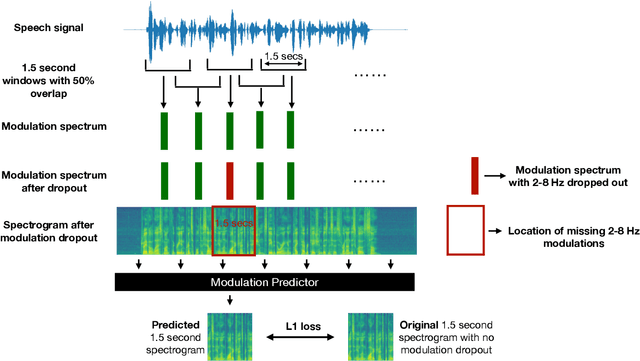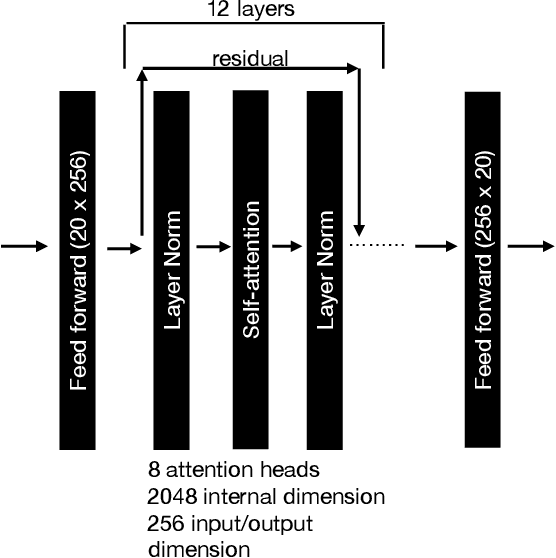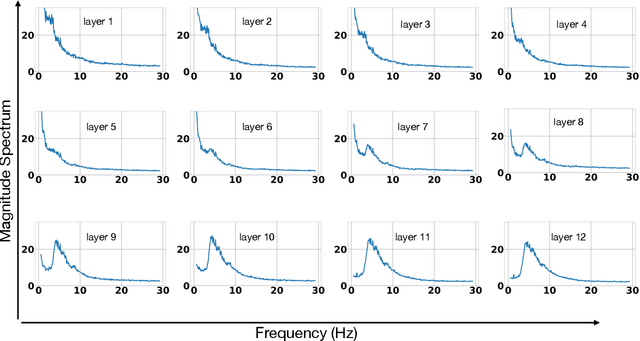Self-supervised Learning with Speech Modulation Dropout
Paper and Code
Mar 22, 2023



We show that training a multi-headed self-attention-based deep network to predict deleted, information-dense 2-8 Hz speech modulations over a 1.5-second section of a speech utterance is an effective way to make machines learn to extract speech modulations using time-domain contextual information. Our work exhibits that, once trained on large volumes of unlabelled data, the outputs of the self-attention layers vary in time with a modulation peak at 4 Hz. These pre-trained layers can be used to initialize parts of an Automatic Speech Recognition system to reduce its reliance on labeled speech data greatly.
 Add to Chrome
Add to Chrome Add to Firefox
Add to Firefox Add to Edge
Add to Edge